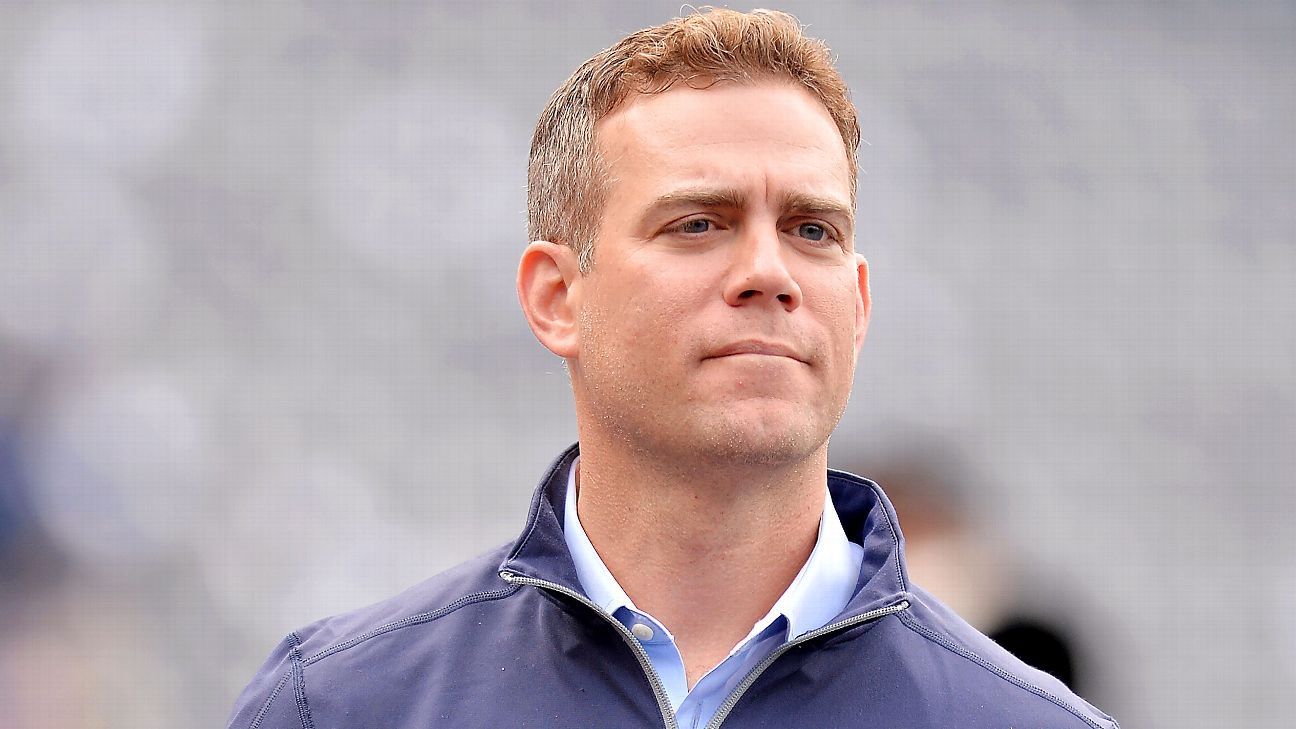
Chicago Cubs president of baseball operations Theo Epstein said he is questioning his own hiring practices in light of the social unrest following the May 25 death of George Floyd in Minneapolis.
"I've hired a black scouting director, [a] farm director in the past, but the majority of people that I've hired, if I'm being honest, have similar backgrounds as me and look a lot like me," Epstein said during a conference call Monday. "That's something I need to ask myself why. I need to question my own assumptions, my own attitudes. I need to find a way to be better."
Epstein spoke in advance of the MLB amateur draft later this week, but he opened his remarks by mentioning Floyd and others killed by acts of violence in recent months.
Floyd, a black man, died after Derek Chauvin, a white police officer, kneeled on his neck for more than eight minutes. Chauvin was charged with second-degree murder. Floyd's death sparked protests across the United States.
"I'd like to start just by offering my condolences to the families of George Floyd, Breonna Taylor, Ahmaud Arbery and the countless victims who keep losing their lives to racist violence in this country year after year, decade after decade, century after century," Epstein said. "I join my colleagues at the Cubs in standing up in support of the Black Lives Matter movement and the protesters who are doing their best to make this a real inflection point in our history. At this moment in time, silence is complicity, and it's important that all of our voices are heard."
Epstein indicated that the Cubs will form a diversity committee to "set better standards" for themselves and hold themselves more accountable. Over his career as an executive both with the Cubs and Red Sox, Epstein has never hired a black manager.
"It can be hard and it can be painful to look at ourselves, but when the problem is systemic, we all have to admit that we're all part of the problem and we all have to do better to become part of the solution," Epstein said. "And as a white person who's had a lot of advantages and a lot of privilege, I can't begin to walk in the shoes of a black person in this country or a black player in Major League Baseball.
"I think I can also look inward, too. I think that's another step that we all have to take in society as well as in the game, is being able to look hard at ourselves."
Epstein reiterated how the population of black players is declining in the majors (in 2019, the number was 7.7% in MLB). He believes a more welcoming sport, at every level, could start to change those numbers.
"It's alarming, just the trend of black players in the big leagues over the last several decades, that we need to address and address it at the youth level, as well," he said. "Major League (Baseball) has done a ton of outreach and has really invested in a lot of diversity programs, but it's a complicated problem with no, one easy solution
"To the extent that the clubhouses are not a welcome enough place for black players, we should all be asking ourselves what we can do to fix that problem. To the extent that we don't have enough black general managers or black managers, I think we all need to look at ourselves, at our own practices.
"If there's one thing we've learned with systemic racism in general, the system doesn't fix itself. It's on each of us to take action to stand up and make some changes."















 Phone: (800) 737. 6040
Phone: (800) 737. 6040 Fax: (800) 825 5558
Fax: (800) 825 5558 Website:
Website:  Email:
Email: 






